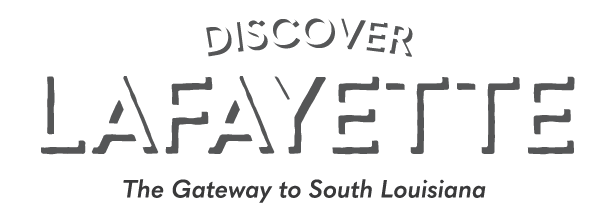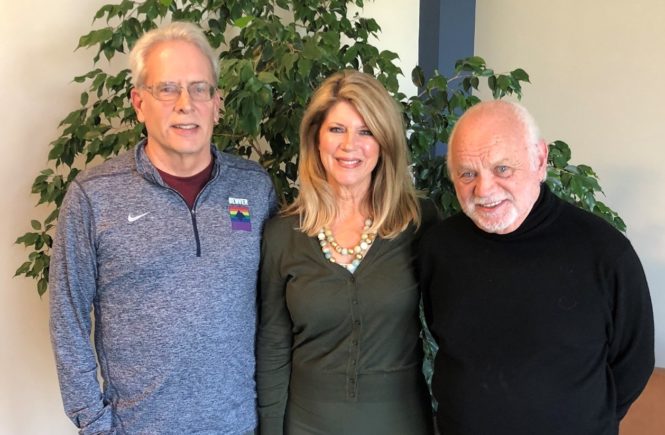Podcast: Play in new window | Download (Duration: 48:24 — 66.5MB)
Our guests today are local attorneys Tommy Guilbeau and Jim Lambert who both believe that Louisiana should outlaw the death penalty.
Along with fellow attorney, Paul Hebert, they will be speaking on behalf of the Friends of the Humanities at the Hilliard Art Museum’s Lunch and Learn Series on April 5, 2019, at noon, in conjunction with the exhibition entitled: Slavery, The Prison Industrial Complex. Note: this event is not a debate or discussion of the morality or legality of the death penalty, but rather an opportunity to provide information and insight to those present. Attendance is free and you will need to bring your own brown bag lunch.
Both Jim and Tommy work directly with persons who have been accused or convicted of committing crimes. Tommy Guilbeau is a prominent criminal lawyer who has handled seven death penalty cases. He personally witnessed the execution of one of his clients, Dalton Prejean. Tommy is knowledgeable about death row, application of the death penalty and where Louisiana stands today on the death sentence.
Jim Lambert has been involved with Kairos Prison Ministry at Angola since 2001. Kairos Prison Ministry’s mission is to “share the transforming love and forgiveness of Jesus Christ to impact the hearts and lives of incarcerated persons and their families, so as to assist them in becoming loving and productive citizens of their communities”.
While Angola has welcomed Kairos for 25 years, it was only in February 2018 that the Louisiana Department of Corrections allowed inmates on Death Row at Angola to be exposed to the loving message of Kairos. Jim has been meeting with ten Death Row inmates on a spiritual basis at Angola on behalf of Kairos since last February. All Death Row inmates have been there for more than twenty years. Jim shared that the men are not what you’d think: they are intellectual, affable and sociable…his initial expectations were turned upside down as he’s gotten to know the men.
In Louisiana there are 19 different ways you can be sentenced to death for the killing of another human being: in the great majority of the cases, the perpetrators act in the heat of passion or were under the influence of drugs or alcohol. Guilbeau stated that less than 1% of murderers recommit any crimes and as an example mentioned the number of “lifer” inmates that work at the Governors Mansion because they are the best and safest inmates to have around.
Who is on Death Row? Mostly people of color populate Death Row and statistics show that one in four cases are reversible, according to The Innocence Project. This group, founded in 1992 by Peter Neufeld and Barry Scheck at Cardozo School of Law, exonerates the wrongly convicted through DNA testing and reforms the criminal justice system to prevent future injustice. Inadequate counsel and prosecutorial misconduct can result in erroneous convictions that disproportionately affect those who do not have adequate resources to pursue justice.
In Louisiana, 69 people are on Death Row, which is a smaller and separate facility contained within the larger complex of Angola. The building is modern and manned by elite security personnel. It has no air conditioning by design, which has generated great controversy. The inmates live in “tiers” in separate 6-by 8-foot cells, and the prisoners can now visit with each other for two hours. In the past, the inmates only had one hour outside of their cells, but a successful lawsuit on the issue of Death Row’s cruel and unusual punishment opened up their opportunity to have interactions with others.
It has been years since anyone has been executed in Louisiana due to the inability to access the lethal injection drug. Only one person has been executed since 2000, and that person voluntarily abandoned all of his appeals and was administered the lethal injection in 2010.
Louisiana is among the 30 states in the U. S. that allow the death penalty. In Oregon, Pennsylvania, and California, it is still legal but the governors have placed moratoriums on its use.
The United States is the only Western country to apply the death penalty. Around the world, use of the death penalty is as controversial as it is in the U. S. The European Union bans the death penalty, and of their 47 member countries, only Armenia, Russia, and Azerbaijan refused to disallow it. The United Nations Assembly has adopted non-binding resolutions outlawing the death penalty, but 60% of the world’s population is still subject to the death penalty.
The United States is joined in allowing the death penalty by China, India, Sudan, Indonesia, Pakistan, Bangladesh, Nigeria, Ethiopia, Egypt, Saudi Arabia, Iran, most Islamic countries, Japan, South Korea, Taiwan, and Sri Lanka. More people are executed in China than all other countries in the world combined.
Tommy Guilbeau shared facts about the Death Penalty: (1) Statistics show this it is not a deterrent to other crime, and in fact, in states where there is no death penalty, murder rates are lower. See more facts here. (2) The Bible does not condone it; while the Old Testament is full of stories of God’s wrath it, the New Testament is about love and forgiveness. The Catholic, Episcopal, Baptist, Methodist and other churches are all against the death penalty. (3) The Death penalty doesn’t save the government money but can cost hundreds of millions of dollars in holding the prisoners in separate holding facilities while paying for appeals that can continue for over 10 to 15 years for executions that never occur. In Louisiana, the cost of maintaining death row and associated attorneys fees and appeals costs since 2000 has totaled $215 million. (4) The Death Penalty disproportionately affects the uneducated and minority populations who do not have sufficient resources to have adequate legal counsel; (5) Use of the death penalty is political, but does not allow closure for the victims’ families as they have to endure endless appearances in conjunction with the death row appeal process. Both Mr. Lambert and Mr. Guilbeau stated that one of the most severe penalties you can endure is a life sentence.
Abolitionists such as Mr. Lambert and Mr. Guilbeau agree and accept the fact that life in prison is the best outcome for heinous crimes such as first-degree murder. These perpetrators have made terrible mistakes and they must pay the price by spending their life behind bars.
The Friends of the Humanities, in partnership with the Hilliard Art Museum, hope to share the facts stated above and thus allow the public to understand more so that people may make up their own minds as to their position on this topic.



